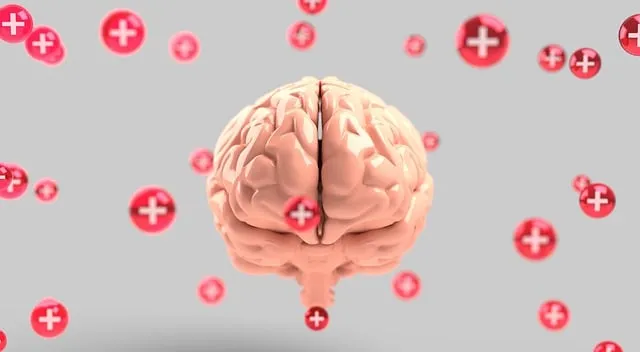Aurora Kaiser Permanente behavioural health providers offer a comprehensive approach to depression prevention and management. They identify key signs like persistent sadness, changes in appetite/sleep, and suicidal thoughts, providing specialised services including self-care practices, CBT, mindfulness, and stress management workshops. Their multifaceted strategy also includes advocacy for mental health policy analysis, holistic lifestyle adjustments like balanced diets and regular exercise, and the cultivation of social support networks to foster resilience against depression.
Depression is a prevalent yet manageable condition. If you recognize the signs early, you can take proactive steps to prevent and overcome it. This article explores a multi-faceted approach to depression prevention, drawing insights from experts like Aurora Kaiser Permanente behavioral health services. We delve into lifestyle changes that boost mental well-being, emphasizing diet, exercise, and sleep. Additionally, we discuss the power of social support and community engagement in building resilience against this common yet treatable illness.
- Understanding Depression: Recognizing Signs and Symptoms
- Aurora Kaiser Permanente Behavioral Health Services: A Comprehensive Approach to Prevention
- Lifestyle Changes for Mental Well-being: Diet, Exercise, and Sleep Strategies
- Social Support and Community Engagement: Building a Resilient Network
Understanding Depression: Recognizing Signs and Symptoms

Depression is a complex mental health condition that significantly impacts an individual’s daily life and well-being. Recognizing the signs and symptoms early on is crucial in preventing the disorder from escalating. Aurora Kaiser Permanente behavioral health providers emphasize the importance of awareness, as depression often manifests through various subtle changes in behavior and emotions. Common indicators include persistent feelings of sadness or hopelessness, loss of interest in activities once enjoyed, changes in appetite and sleep patterns, fatigue, difficulty concentrating, and thoughts of worthlessness or suicide.
By understanding these signs, individuals can proactively seek support from behavioral health professionals who offer specialized services such as self-care practices, stress management workshops, and crisis intervention guidance. Early intervention plays a pivotal role in effective treatment and prevention strategies, ensuring that those struggling with depression receive the necessary care to improve their mental health and overall quality of life.
Aurora Kaiser Permanente Behavioral Health Services: A Comprehensive Approach to Prevention

Aurora Kaiser Permanente Behavioral Health Services takes a comprehensive approach to depression prevention, integrating various strategies to address this complex issue. Their behavioral health providers leverage evidence-based practices such as cognitive behavioral therapy (CBT), mindfulness techniques, and stress management programs to equip individuals with tools for managing depressive symptoms.
Beyond individual therapy, the organization promotes community-level interventions through Mental Health Policy Analysis and Advocacy, fostering environments that support mental well-being. They encourage Self-Care Practices tailored to diverse populations, recognizing the importance of holistic care. By combining these approaches with Mind Over Matter Principles, Aurora Kaiser Permanente aims to prevent depression by empowering individuals with knowledge, skills, and resources for maintaining long-term mental health resilience.
Lifestyle Changes for Mental Well-being: Diet, Exercise, and Sleep Strategies

Depression prevention starts with holistic lifestyle adjustments that have a profound impact on mental well-being. One of the cornerstone changes is adopting a balanced diet, rich in fruits, vegetables, whole grains, and lean proteins. This nutritional shift not only provides essential nutrients for brain health but also stabilizes mood by regulating serotonin levels. Aurora Kaiser Permanente behavioral health providers emphasize the power of nutrition as a foundational pillar in their mental wellness coaching programs development.
Regular physical activity is another effective strategy recommended by Aurora Kaiser Permanente behavioral health providers, incorporating cultural sensitivity in mental healthcare practice. Exercise releases endorphins, which act as natural mood lifters, and can reduce symptoms of depression. Whether it’s going for a walk, practicing yoga, or engaging in team sports, finding an activity that brings joy and fosters social connections is key. Compassion cultivation practices have been shown to enhance mental wellness by promoting self-care and empathy, further strengthening one’s resilience against depression.
Social Support and Community Engagement: Building a Resilient Network

Social support and community engagement play a pivotal role in depression prevention. Connecting with others can provide a sense of belonging and purpose, which are essential for maintaining mental well-being. Aurora Kaiser Permanente behavioral health providers emphasize that building a resilient network involves fostering strong relationships within family, friends, and community groups. Actively participating in social activities, clubs, or volunteer work can help combat feelings of isolation and loneliness, known risk factors for depression.
Community engagement also contributes to coping skills development by offering opportunities for learning new strategies to manage stress and emotional challenges. Additionally, participating in collective efforts to reduce the mental illness stigma within communities can encourage open conversations about mental health, fostering a more supportive environment for individuals facing depression or other forms of mental illness.
In conclusion, depression prevention involves a multi-faceted approach. By understanding the signs and symptoms, seeking support from Aurora Kaiser Permanente behavioral health providers, adopting lifestyle changes such as a balanced diet, regular exercise, and adequate sleep, and building a strong social network, individuals can effectively manage their mental well-being. These strategies, when combined, create a resilient foundation for navigating life’s challenges and fostering overall happiness.






